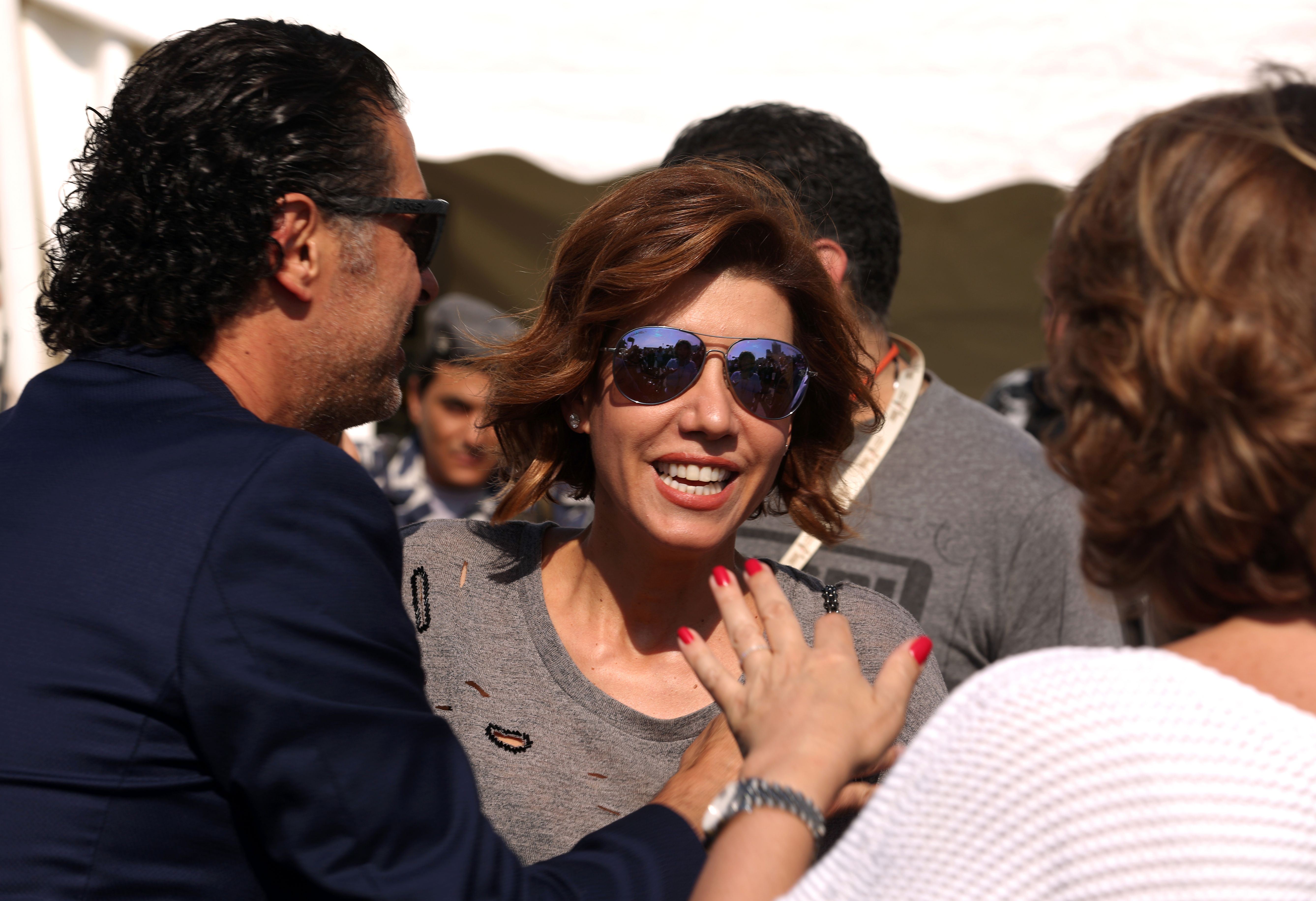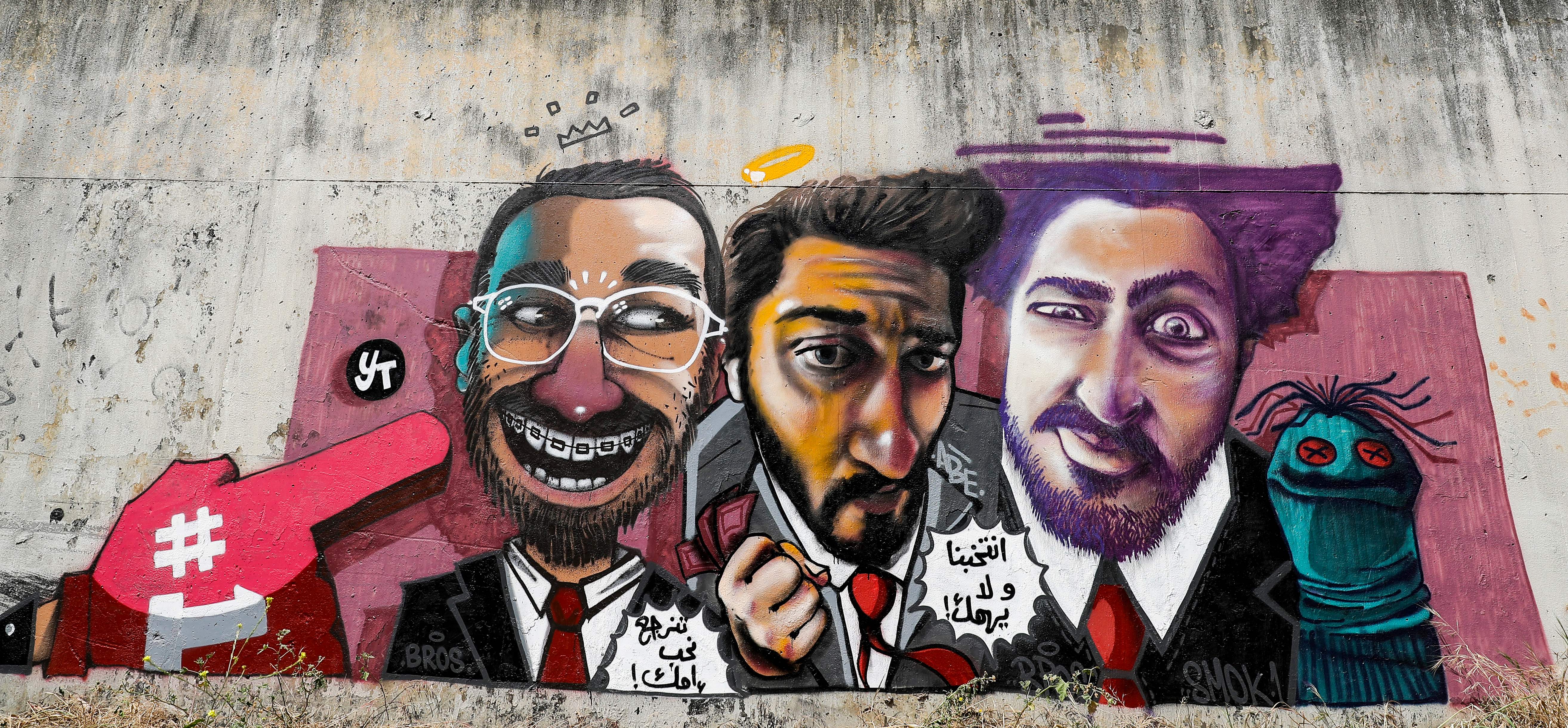BEIRUT, LEBANON — The power’s been out here all morning; a trash heap closes down a stretch of sidewalk. Yet the ruckus of new construction—the growling of a saw, the howling of jackhammer—continues along this coastal city. Tankers move about the harbor. Young people sit at coffee shops ahead of the national elections to be held here on May 6th, a first for the country in nearly a decade.
Paula Yacoubian, 42, is seated at her campaign office, which sits on a hill overlooking the sprawl of homes draped across the distant Mount Lebanon. Around her are a tangle of fixers and supporters who answer phones and busy her with questions about strategy and inquire if she’d like any candy. On a nearby table, there’s a basket full of chocolates imprinted with her face.
Her campaign banner is strung around town, on billboards, highway overpasses, and electronic scrolling marquees. But about 20 percent of the voters here are expected to be young, many of them voting in parliamentary elections for the first time in their lives. Will they notice all the signage?
Yacoubian continues her conversation into the phone, looking now especially forlorn. Her campaign has run into its biggest fiasco yet: The former journalist—who is running with the Civil Society Party (one which is not aligned with a religion, as others are) in the elections—had just learned her voting eligibility was rescinded. “We went to court to see what we can do about it,” she tells me at her office, cradling the phone in the crook between shoulder and ear. “I am a candidate, but I cannot vote for myself.”

(Photo: Patrick Baz/AFP/Getty Images)
She believes it’s another candidate, running in a different party, who sabotaged her. All she can do is shrug; it’s just another hurdle in her uphill battle to change politics from sectarian regiment to social action—like pushing for ballots that aren’t aligned with religious sects, homing in on garbage cleaning initiatives, increased rights for women (some 111 are running in this election), and attacking high unemployment.
Corruption manifests ahead of the elections through vote-buying and the deterioration of public services. There is an unimaginable garbage collection and disposal crisis, which came to a head in 2015 when the city shutdown a landfill and the beaches overflowed with rubbish, turning them black. This bureaucratic failure led residents, most of them young, to protest in the streets. But garbage collection and dumping did not improve. Pollution still obscures Mount Lebanon, which on a good day can be seen just before sunrise, despite calls for a decrease in the state’s land reclamation efforts.
I’ve spoken with a half dozen politicians and upstart candidates in Lebanon. They say power outages and the resulting strain are a regular occurrence. Traffic is congested, and the sidewalks impassable. And, most troubling, political corruption runs rampant, most recently with two out of 10 companies expecting to issue bribes to “get things done” and the sitting government rarely enforces laws aimed at trash collection and power utility restoration, according to GAN Integrity, a compliance management software fire.
The Arab Spring is dead but those who spurred it are reorganizing. Today the majority of the Arab world is populated by a median age of 22 years old (the global average is 28), many of whom participated in the revolutions.
When I ask Yacoubian whether she thinks the youth vote will bring about change here, she says: “Absolutely, but a lot of them are [expats] and they are resigned from their rights. They don’t want to listen. They don’t want to hear anything from Lebanon. They just want to get away from here.”
Their ambivalence is warranted. Nothing has been fixed: not the garbage, not the energy crisis, not the inaction of politicians who pocket money for public works projects. Their voices are likewise unheard because they chose to focus on topics that are of little interest to the governing bodies of the country.

(Photo: Joseph Eid/AFP/Getty Images)
The Lebanese Center for Policy Research polled 2,496 Lebanese across the country to ask what they thought were the most important issues facing the nation ahead of the election. The top three concerns were a rise in the cost of living, unemployment, and the cost of health and education, in that order. Only 30 percent of the 65 members of parliament who were polled shared the same agendas as their constituents. (LCPS made it a point to underscore that those members were the only ones who accepted the invitation to take part in the study.) “The fact that MP’s lists of concerns do not match those of citizens indicates they are not actively addressing peoples’ priorities, even if inadvertently,” the report states.
“I fear that Beirut is going the way of Sarajevo,” says Basem Shabb, a member of parliament who is running for re-election, referencing the four-year siege of the Republic of Bosnia and Herzegovina’s capitol. “The problem I have with young people is I don’t hear from them talk of individual freedoms. The elephant in the room is liberal democracy.” Shabb believes the political inaction of the youth in Beirut is attributed to smartphones and social media, that they have no interest in political parties or the larger implications of sectarian leadership because they focus on smaller and more personal issues, like, he says, renewable energy. “They aren’t interested in renewable freedoms?”
A prominent blogger in Lebanon, Najib Mitri says that, while many young upstarts in the country want to take active roles in their government and organize change, it’s hard to escape the progressive veneer of social media in favor of real, hard-earned change.
“It’s a small bubble where you believe everything is going to get better,” Mitri tells me as we passed in front of the Parliament building, “but then on the ground it’s a whole different story.”
Meanwhile, politicians are once again accused of buying votes from families. The going cost is said to be $2,000 each.
Lands of Metamorphosis is a month-long column chronicling the social, cultural, and political paroxysms of the Middle East today.





